

On this month's Morbidly Fascinating Page:
Some last meal choices before execution
IN THE ARCHIVES:
Utrecht Hospital
Dinosaurs to Birds
Ghosts of Alcatraz
Hansen’s Disease
Accidental Photos
Deaths on Mt. Everest
Food preferences say so much about us. Every day, we make multiple food choices — and sometimes, it becomes so routine that we don’t even think about it. We try to be healthy in the chances it’ll increase our lifespan (and to stay in tip-top shape in the present) and understand that food is cultural, and a wonderful way to experience the whole world around us. So, with that said, we have a weird question. What would you order for your last meal?
In the United States, the last meal is traditionally given to inmates a day before the execution. Each state has different regulations on what they are allowed to serve and the budget for the meal.
With no limitations on food quantity or choice, many criminals have selected a wide variety of combinations. Generally in the United States, alcoholic beverages are not allowed. As one individual wistfully expressed, “As a drink, I would have nothing more than beer, beer and beer.”
There is a sort of voyeuristic fascination about the choices of men and women being offered one final moment of the "freedom" to be a consumer. Their choices, as diverse, poignant and sometimes just plain wacky as they are, offer clues to their identities and character. But perhaps that fascination is simply a kind of "desert island discs" game that calls on the reader to consider his or her own menu for a final meal.
If a prisoner cannot decide on what he or she wants, they are typcially given a traditional meal of steak and eggs with milk.
Below are some examples of a last meal request.
Aileen Wuornos
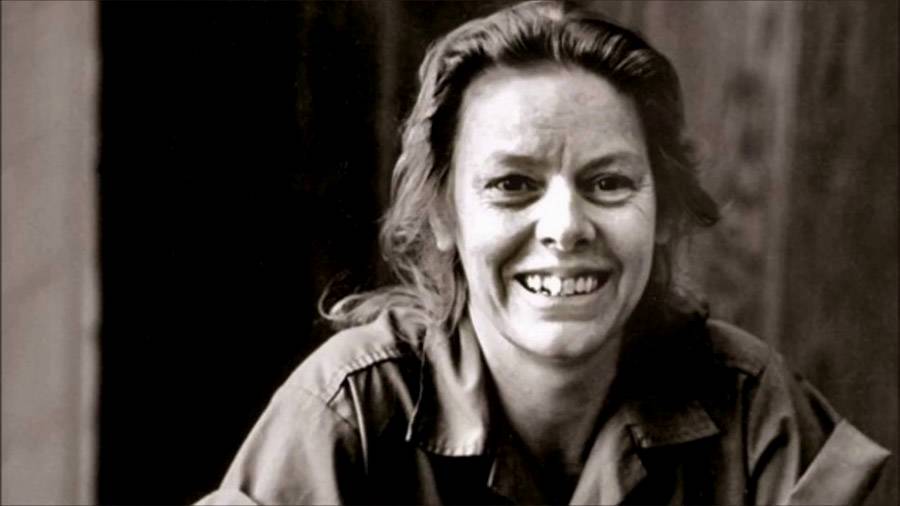

Aileen Carol Wuornos Pralle (February 29, 1956 – October 9, 2002) was an American serial killer who murdered seven men in Florida in 1989 and 1990 by shooting them at point-blank range. Wuornos claimed that her victims had either raped or attempted to rape her while she was a sex worker, and that all of the homicides were committed in self-defense. She was convicted and was executed by lethal injection on October 9, 2002.
Wuornos, who was the subject of the movie Monster, declined a final meal, opting instead for black coffee.
John Wayne Gacy
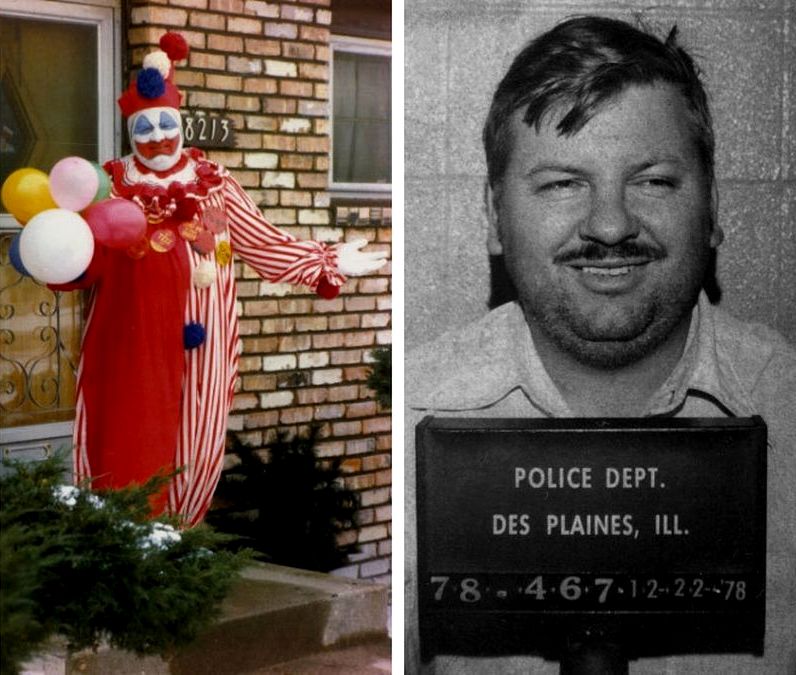
John Wayne Gacy (March 17, 1942 – May 10, 1994) was an American serial killer who raped, tortured and murdered at least 33 teenage boys and young men between 1972 and 1978 in Cook County, Illinois (a part of metropolitan Chicago).
All of Gacy's known murders were committed inside his Norwood Park ranch house. His victims were typically induced to his address by force or deception, and all except one of his victims were murdered by strangulation with a makeshift garrote. Gacy buried 26 of his victims in the crawl space of his home. Three other victims were buried elsewhere on his property, while the bodies of his last four known victims were thrown in the Des Plaines River.
Convicted of 33 murders, Gacy was sentenced to death on March 13, 1980 for 12 of those murders. He spent 14 years on death row before he was executed by lethal injection at Stateville Correctional Center on May 10, 1994.
Gacy became known as the "Killer Clown" because of his charitable services at fund-raising events, parades, and children's parties where he would dress as "Pogo the Clown" or "Patches the Clown"…both characters that he had created.
John Wayne Gacy’s last meal consisted of twelve deep-fried shrimp, a bucket of original recipe chicken from KFC, french fries, and a pound of strawberries. He ate it all.
Gary Gilmore
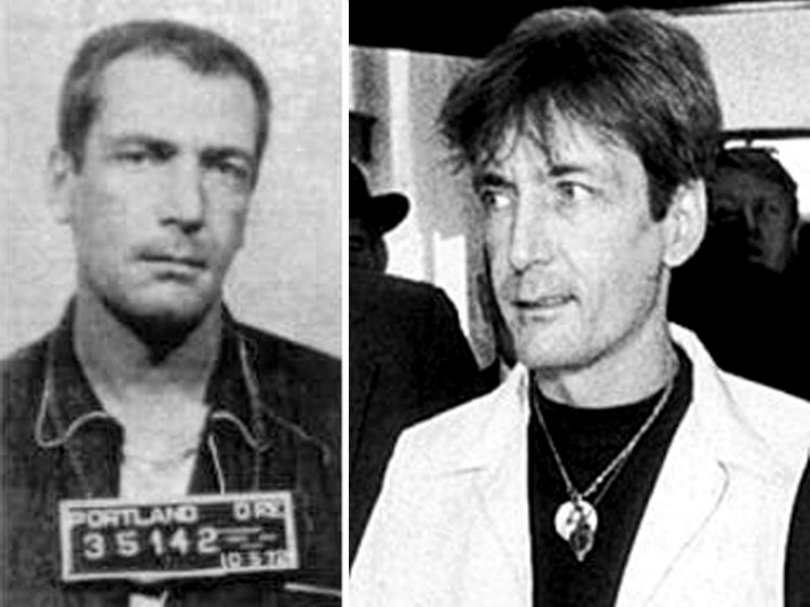
Gary Mark Gilmore (December 4, 1940 – January 17, 1977) was an American crimninal who gained international attention for demanding the implementation of his death sentence for two murders he committed in Utah. After the US Supreme Court upheld a new series of death penalty statutes in the 1976 decision Gregg v. Georgia, he became the first person in almost ten years to be executed in the United States. These new statutes avoided the problems under the 1972 decision in Furman v. Georgia, which had resulted in earlier death penalty statutes being deemed as "cruel and unusual" punishment, and therefore unconstitutional. (The Supreme Court had previously ordered all states to commute death sentences to life imprisonment after Furman v. Georgia.). Gilmore was executed by a firing squad in 1977.
His life and execution were the subject of the 1979 nonfiction novel The Executioner's Song by Norman Mailer, and a 1982 TV film of the novel starring Tommy Lee Jones as Gilmore.
On the evening before his execution, he requested a last meal of steak, potatoes, milk and coffee but consumed only the milk and coffee.
Ted Bundy
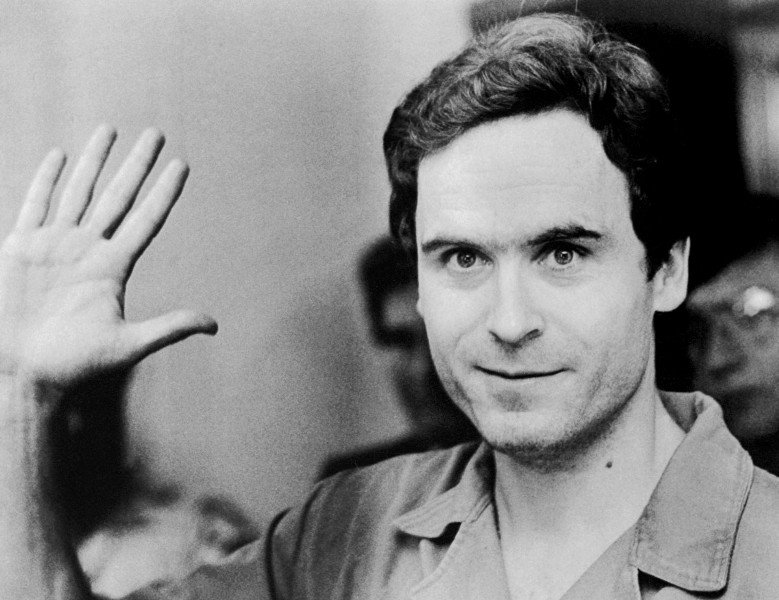
Theodore Robert Bundy (November 24, 1946 – January 24, 1989) was an American serial killer who kidnapped, raped, and murdered numerous young women and girls during the 1970s and possibly earlier. After more than a decade of denials, before his execution in 1989 he confessed to 30 homicides that he committed in seven states between 1974 and 1978. The true number of victims is unknown and possibly higher.
Bundy was regarded as handsome and charismatic, traits that he may have exploited to win the trust of victims and society. He would typically approach his victims in public places, feigning injury or disability, or impersonating an authority figure, before knocking them unconscious and taking them to secluded locations to rape and kill them.
Biographer Ann Rule, who had previously worked with Bundy, described him as "a sadistic sociopath who took pleasure from another human's pain and the control he had over his victims."
Bundy requested steak cooked medium-rare, eggs over easy, hash browns, toast with butter and jelly, milk, and juice.
Timothy McVeigh
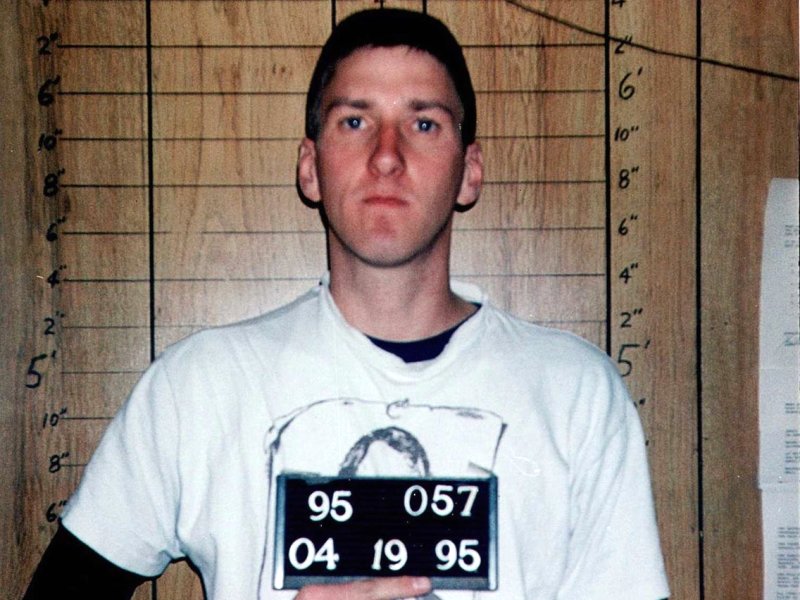
Timothy James McVeigh (April 23, 1968 – June 11, 2001) was an American domestic terrorist who perpetrated the 1995 Oklahoma City bombing that killed 168 people and injured over 680 others. The bombing was the deadliest act of terrorism in the United States prior to the September 11 attacks, and remains the deadliest act of domestic terrorism in United States history.
A Gulf War veteran, McVeigh sought revenge against the federal government, claiming retaliation for the 1993 Waco, Texas incident.
For his last meal, McVeigh requested two pints of mint chocolate chip ice cream.
Stephen Anderson
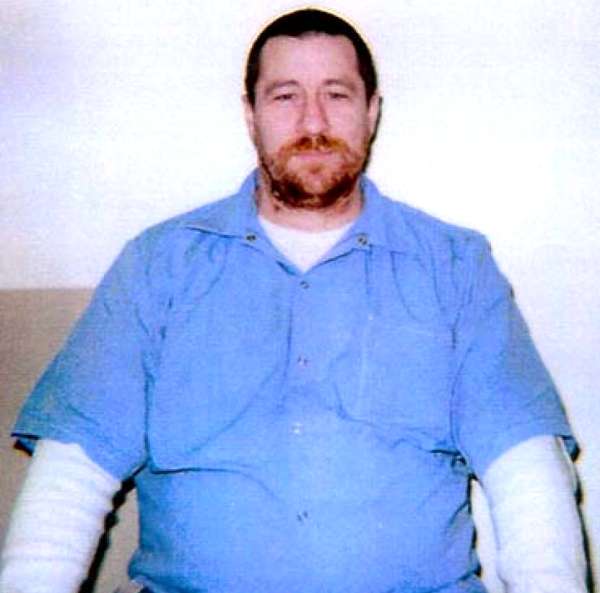
Stephen Wayne Anderson (July 8, 1953 – January 29, 2002) was a murderer who was executed at California's San Quentin Prison by lethal injection in 2002 for the murder of Elizabeth Lyman. He admitted to the killings of at least eight other people, including a fellow inmate and at least seven contract killings.
For his last meal, Anderson requested two grilled cheese sandwiches, a pint of cottage cheese, a hominy/corn mixture, peach pie, chocolate chip ice cream, and radishes.
Robert Alton Harris
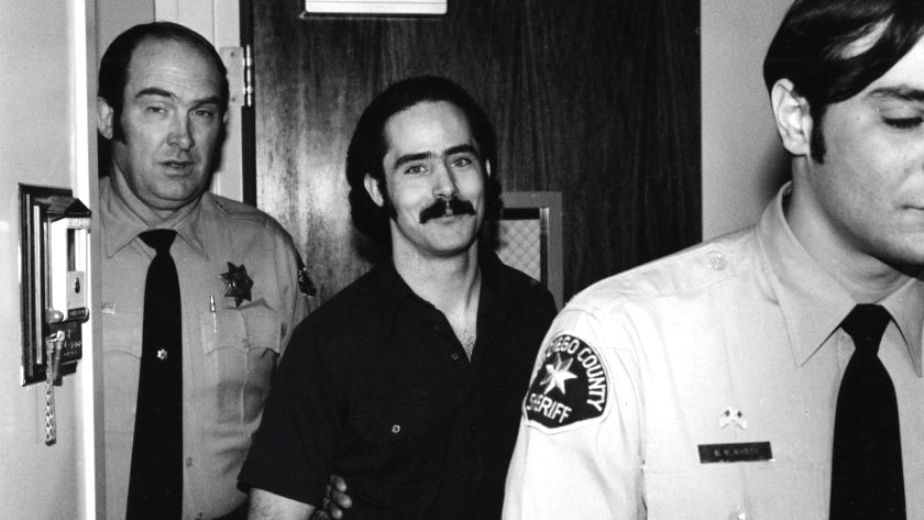
Robert Alton Harris (January 15, 1953 - April 21, 1992) was an American car thief, kidnapper, and murderer who was executed at San Quentin Prison in 1992 for the 1978 murders of two teenage boys in San Diego. His execution was the first in the state of California since 1967.
On July 5, 1978, Harris and his younger brother commandeered a car occupied by two 16-year-old boys, John Mayeski and Michael Baker, ordered them to drive to a remote area, then killed them.
Harris requested and received a very large last meal, which included a 21-piece bucket of Kentucky Fried Chicken, two large Dominos’s pizza, a bag of jelly beans, a six-pack of Pepsi, and a pack of Camel cigarettes. It is not known if he managed to finish all of that.
Why are prisoners allowed a last meal?
Giving a "last meal" is a symbolic demonstration that the upcoming execution is not merely an act of vengeance, intended to impose the maximum possible suffering on one who is about to die.
Understand that the last meal is not some sumptuous gourmet repast. The choices of a last meal are generally limited to what can be prepared by the prison kitchen, or what is readily available — inexpensively — as take-out in the area. One cannot order up some exotic meat or elegant dessert. Steak and ice cream are generally the upper limits.
You can be certain that condemned prisoners are not treated like royalty. Their last meal is not cooked before them. It is brought in on a standard prison tray. No flowers, no soft music, no linen tablecloths, no sterling silver, no wine or liquor or beer, no company for stimulating conversation. Just a hot meal on a tray, with minimum utensils. And one or more guards watching for any misbehavior, such as trying to choke oneself to beat the executioner.
Being allowed to choose whether one eats fried chicken and apple pie, or pork chops and ice cream, for the last nourishment before being put to death hardly qualifies as any kind of favorable treatment.
See more HERE
Are some states ending the "last meal" tradition?
The death row last meal is more than 2,000 years old, dating back to Christ. But in recent years, some states have abandoned the tradition.
Texas inmates who are set to be executed will no longer get their choice of last meals, a change prison officials made after a prominent state senator became miffed over an expansive request from a man condemned for a notorious dragging death.
Lawrence Russell Brewer, who was executed for the hate crime slaying of James Byrd Jr. more than a decade ago, asked for two chicken fried steaks, a triple-meat bacon cheeseburger, fried okra, a pound of barbecue, three fajitas, a meat lover's pizza, a pint of ice cream and a slab of peanut butter fudge with crushed peanuts. Prison officials said Brewer didn't eat any of it.
"It is extremely inappropriate to give a person sentenced to death such a privilege," Sen. John Whitmire, chairman of the Senate Criminal Justice Committee, wrote in a letter Thursday to Brad Livingston, the executive director of the Texas Department of Criminal Justice.
Within hours, Livingston said the senator's concerns were valid and the practice of allowing death row offenders to choose their final meal was history.
"Effective immediately, no such accommodations will be made," Livingston said. "They will receive the same prison meal served to all the other offenders on the unit."
See more HERE